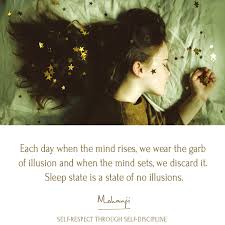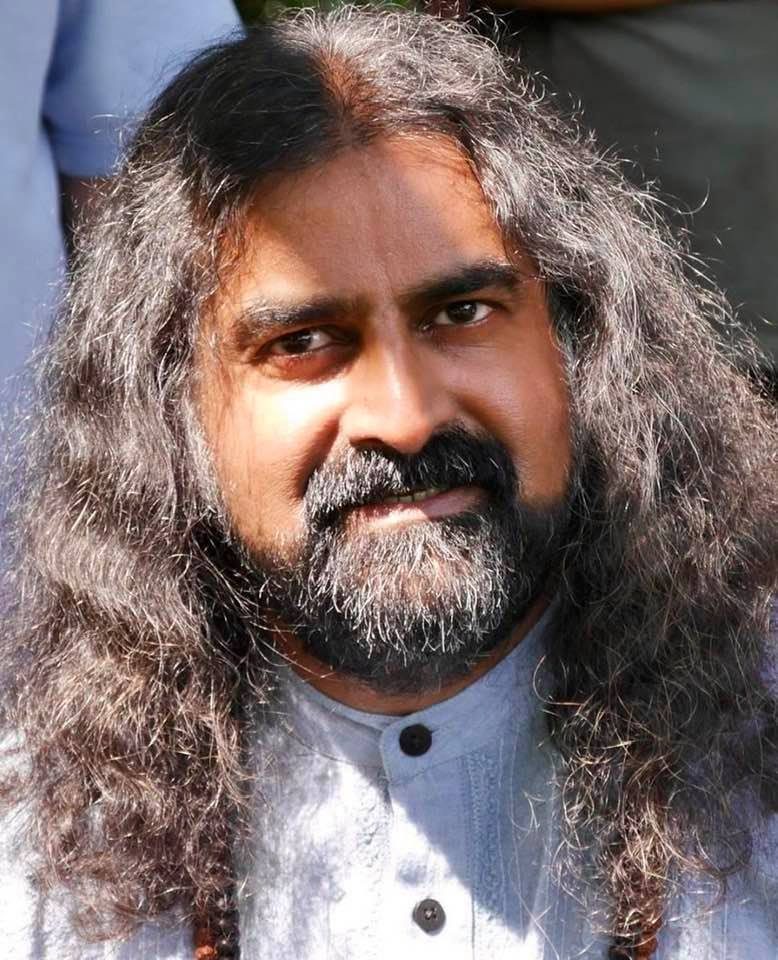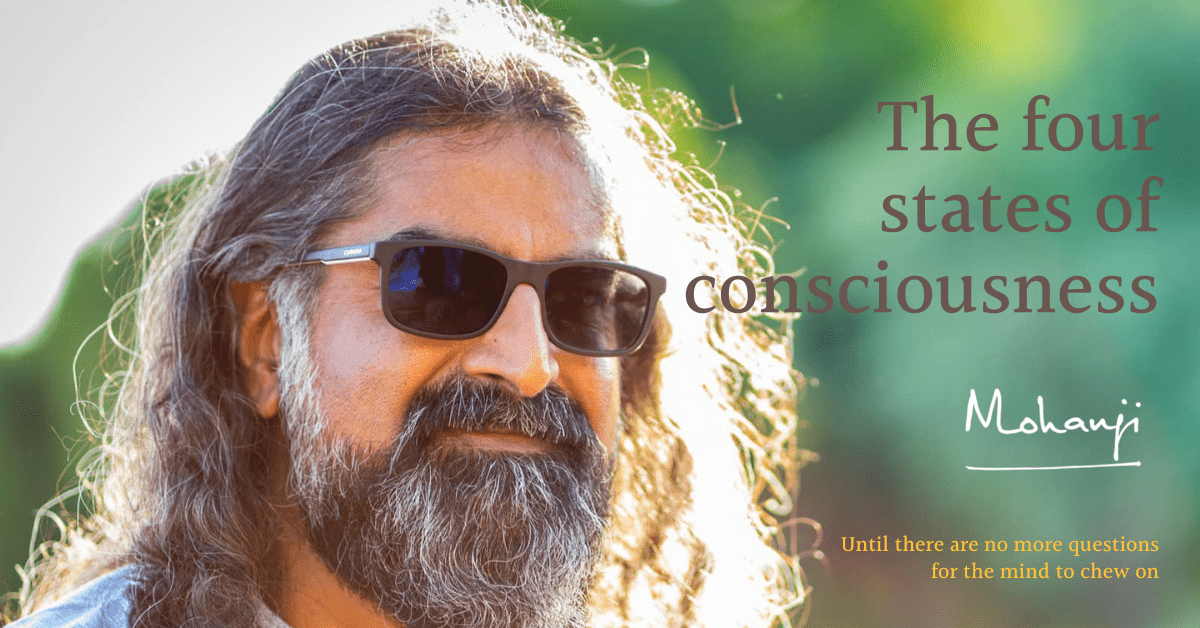What are the four states of consciousness? | Mohanji
Everything is dimensions; all are dimensions. When I say consciousness, you can call it the operating mechanism. The operating mechanism means (understand this clearly. This is fundamental): You have primarily five senses, right? What for? What is the use of senses? To experience, of course, to experience the materials of the world.
What is processing these experiences? The eyes can see, but if your mind is not present, the eyes won’t see anything. You can look, but you won’t see when your mind is not available. The mind processes emotions, the intellect processes information and the ego process some things related to personality, such as position, possession, respect, all those things.
The processors
These are the three processors that everybody has; all of you have – the mind, intellect, and ego as processors. Constantly, you’re processing in the waking state, so many things, so much of data is being processed. Some are emotions; some are information; some are egocentric stuff, like your materials, relations, rank, and position in society; all those things are being processed.
The Koshas
To understand them or to store them, there are koshas (sheaths), the physical sheath, Annamaya Kosha, Pranamaya Kosha, Manomaya Kosha; there are a lot of sheaths, various layers, the physical layer, the emotional layer – they are storage boxes. Then finally, the root sits in the impression, the seed form sits in the causal layer.
The causal layer
The causal layer is what the soul takes when it leaves the body. It takes that, and then it puts it in another body. So that’s what we call patterns. At the time of death, the soul leaves with your causal layer; (sometimes, the other layers) and get reinstalled in another body for the sake of different experiences.
Thus, we have taken hundreds of lives, hundreds and 1000s of lives. We have taken many lives because our desires are not ending. We have more and more desires. Each desire is causing more, asking for more time. You need time; you need space; you need environment; you need awareness to experience. For you to experience something, you need space; you need time; you need awareness.

Levels of Consciousness
The data collected from the senses are processed by the mind-matter. The mind-matter is the mind, intellect and ego put together. Then consciousness works in three levels.
The waking state
What are the three levels? The waking state, dream state, deep sleep state. In the waking state, you are collecting data from the world around you. That also means that only what you can see you can collect. When you’re looking at one thing, and there are so many things happening around you, can you see them? You can’t, so you are very limited, extremely limited. You are only processing something which you have witnessed right in front of you. You can’t experience or process anything which you can’t touch; you can’t see; you can’t witness; you can’t do anything.
We are very limited; understand that clearly. Like for example, you’re sitting in Udipi now, but something is happening in Mookambika. But you have nothing to do with it. Why? You are not there. So, that limited we are. We are limited to a small environment, and that’s all we see.
The dream state
Then the dream state. In the waking state, we are awake, and we are collecting, or we are responding to the world outside. During the dream state, what do you do? In the dream state, you are still responding, but that response is to the world inside you.
What is the world inside you? The collected data is what you have stored inside. What you have already collected and stored inside is the material that the dream state processes. It cannot process from the outside because your senses have shut down, gone to sleep. It is on sleep mode. The conscious mind, the conscious intellect, conscious ego is not functional, along with the outside. But internally, the data which is already stored is being processed. So the dream state is active.
You do have experiences in the dream state. The dream state is an alive state; you do have experiences. So, the dream state is alive, which is active and also gives you experiences.
Whatever states that give you experiences is important for you because there is fulfilment; experiences are about fulfilment. Why are you trying for experiences? Every moment is your life. What is happening every moment is the purpose of life. What is happening each moment is what you are born for. There is no one purpose in an imaginary way. Life is it as it happens every moment. Each moment is important, including the dream state. So, this is the second state.
The deep sleep state of consciousness
Then comes the deep sleep state. The deep sleep state is what? Totally absent. This means the external organs, the organs you use for external pursuits, and the organs you use for internal pursuits both shut down. Then what are you? Completely dead. It’s like a death state, a state of death three and a half hours or something. That’s the exact time of mobile charging. You plug it in, and you get a full charge of 100%. That is in three hours, three and a half hours.

Then you come back in the same body in the morning, and then you say, “I am alive.” Then you have a world outside. Even before, there was a world outside, but you can’t use that world. The world is useless for you. But when you wake up, and you start looking out, there is a world which you can use.
Then you start your day again; you bring forth all your attributes. You say, “I am so and so. I’m male or female; I belong to these parents, or this lineage, these gotras.” All these things are when you’re awake. Then you become a symbol of your family, your desires, whatever, all those things.
So, consciousness has three aspects. What are the three aspects? The waking state, the dream state, the deep sleep state. Have you understood this phenomenon – the senses, the processors, consciousness.
The fourth state of consciousness
Now, there is a fourth possibility, which when you reach a state of enlightenment, you connect to. That is a state of a witness of these three states. You are witnessing the waking state, which means no attachment to your activities—detached existence, when you are detached from your waking state activities, continuously and consistently, because you can only do meditation when you are awake. Correct? You can only be in witnesshood when you are awake.
But people do meditations in sleep because sometimes some people sleep. (Mohanji laughs) that’s different. That is not always meditation. It depends on how much you snore. If you are definitely not snoring, you’re in a deep sleep. But otherwise, it’s probably the dream state. Some people shout. Sometimes, when you enter a room, it’s like you entered a zoo. Like you go through various cages, see people snoring on various levels. And then you come out, and then you say, ‘Oh my God, what a relief.’ These are all high levels of meditation. (Mohanji laughs)
When you are in a witness mode of your waking state, spontaneously like a boat floating on water, you will also transcend into the dream state. That means you are not falling asleep. You are a witness to your sleep mode; also, there is no changing, like, for example, in the sleep state now, you don’t know when you’re sleeping, right? You lie down, and suddenly you just go to sleep. Then you go into the dream state. It’s all uncontrolled.
The Turiya state
Here, you start witnessing your dream state also; that process happens automatically. Like you witness the waking state where you’re always in witness mode, you’re also witnessing the dream state. Then comes the deep sleep state, the deep sleep state also you witness. When you start witnessing these three states, you are in the Turiya state, the fourth state. This is called the Turiya state. That witnesshood actually detaches you one more step from this physical to the internal, to the processors, the minor and major processors to a level where you’re witnessing everything.

The God particle
Then there is somebody sitting behind nurturing all these states; who is that? The God particle, the soul particle. You start connecting to the soul particle, the permanent thing in you that is not bound by your body, which is not bound by your emotions, durations, experiences, nothing! It’s not bound by anything; that’s the soul particle. Then you start connecting to the soul particle, and there, you attain immortality.
You reach higher levels of Samadhi by connecting to the soul aspect of you, which is the real energy aspect of you; the others are only dimensions of that energy. That’s why I said all these things which you talk about are various dimensions of your own existence. They are real. They are all real; they are important, but at the same time, please remember you are not one thing. You are everything—all of us, each person.
Also, remember, an ant whom you probably would ignore walking in here, or a bee or a bird or an elephant, they are all the same, the same system, the same kind of configuration. The difference is that most of the birds and animals operate purely on an instinct basis. The survival instinct is the highest of instincts, even for humans. We have a survival instinct, and every being has an instinct.

Instincts
So, most of them only operate on instincts, but when it comes to humans, we also operate on intelligence and imagination. We operate on intelligence and imagination more than instinct. So what do we do? We think, “Oh, instinct is very inferior. Now, I am a very refined personality; I only operate on imagination and intelligence.”
This is what we see in the world today. All that we have created, the buildings, the structure, and the infrastructure are connected to intelligence and imagination. But man is still instinct oriented – survival. We see that happening.
Mad competition, comparisons, isn’t it? This is all instinct oriented. If you’re very intelligent, you will not compete; there is nothing to compete; we are all the same, we are all playing our roles in life. Nobody’s higher; nobody’s lower. The urge to prove that I’m better than you is from the instinct – the survival of the fittest is an instinct thing.
If you are able to see through all this – when you look at a person, you know where they are operating from; it’s very simple. Definitely uncomplicated. We are not complicated. We seem to be complicated. Nothing is complicated. We are all of various dimensions. But if you understand that intelligence and imagination is our strength, that is why we even chose – we are relatively a weak frame and weak personality, or a weak constitution.
An animal or a cow can survive the winter or various weather conditions without much problem. If you sit in the weather outside, you will be a fossil soon (Mohanji laughs). We are not so strong to survive so many different climates and stuff. We are much more vulnerable than various species. But we have intelligence and imagination with which we are surviving.
What should be our way of operation then? To display that intelligence and imagination as the highest of compassion, the highest of kindness, highest inclusiveness, so we connect to every being. All this is important; that is when you actually become a human being. Otherwise, we have a human form, but as another weak expression of instinct.
Transcribed by Ulla Bernholdt
Proofread by Rekha Murali


2 thoughts on “True Consciousness – 4 states”
Dear Sir, Madam
My name is Srini and I got some spirituality experience and it seems to be my rising ego subsided and I exist just as piece but fear is catching up a lot and also I see many new people which I haven’t seen in my visible roads
My question is any state post this or is it Jeevan muktha state ? I mean I exhaust remaining karma slowly and attain videvatmutkhi post bodies dies?
Dear Srini,
You can ask Mohanji directly about your state or other questions you may have on Weekly Talks https://mohanji.org/courses/weekly-talk-with-mohanji/
With love,
Mohanji’s Team